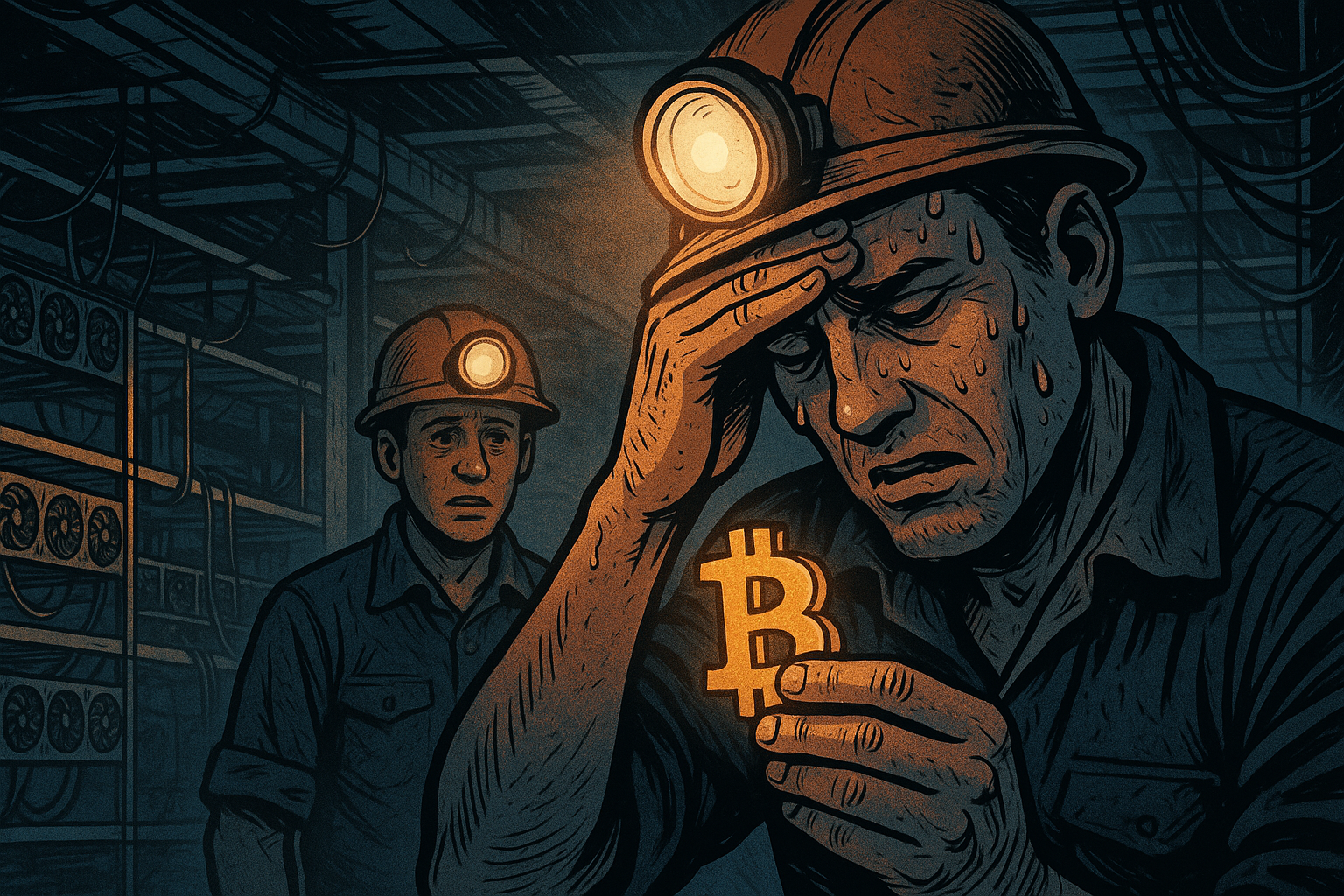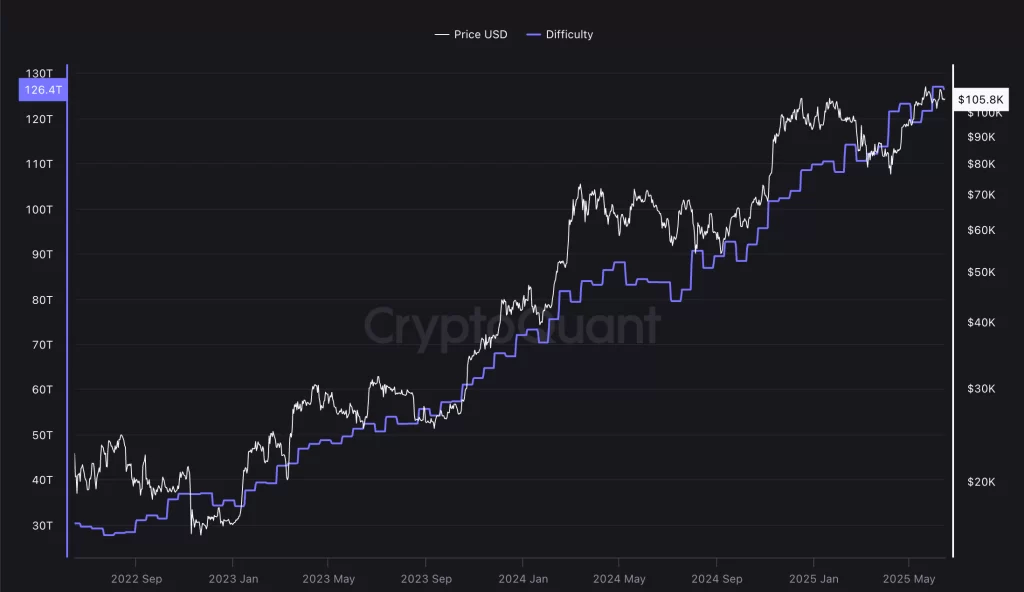Bitcoin Mining Difficulty Dips Slightly After Hitting All-Time High

Bitcoin Mining Difficulty Dips Slightly After Hitting All-Time High
Bitcoin Mining Difficulty Dips Slightly From Record High
Bitcoin’s mining difficulty edged down on Saturday after setting a new all-time high earlier this month. The metric hit 126.9 trillion on May 31. It now sits at around 126.4 trillion, according to CryptoQuant.
Mining difficulty and hashrate — which measures the total computing power securing the Bitcoin network — often move together. When both increase, miners face more competition and higher costs.
Miners Face Growing Financial Pressures
The April 2024 halving cut Bitcoin block rewards in half. Since then, miners have dealt with shrinking revenue and rising electricity and equipment costs.
These conditions have made it harder for many operations to stay profitable. Some miners have scaled back. Others are adjusting their strategies to survive the tighter margins.

Public Miners Expand Despite Headwinds
Some publicly traded mining firms are bucking the trend. Instead of cutting back, they are expanding and holding onto their mined BTC.
Bitcoin miner MARA increased its BTC output by 35% in May. This came amid record hashrate and significant market volatility.
The network’s hashrate crossed 1 zetahash per second (ZH/s) in April — a major milestone for Bitcoin. Despite the pressure, MARA mined 950 BTC in May and didn’t sell any of it.
“We sold zero Bitcoin,” CFO Salman Khan said in a June 3 X post. MARA now holds 49,179 BTC in its treasury, making it one of the largest corporate holders of Bitcoin.
CleanSpark Also Increases BTC Production
CleanSpark, another public miner that focuses on renewable energy, reported a 9% rise in May BTC production. It mined 694 BTC, bringing total holdings to 12,502 BTC.
The firm’s hashrate also grew. “We increased our month-end hashrate to 45.6 EH/s, up 7.5%,” CEO Zack Bradford wrote in the company’s monthly update.
The trend of miners holding Bitcoin instead of selling it marks a shift in business strategy. Many used to sell their coins immediately to cover operating expenses. Now, more firms see BTC as a long-term asset worth keeping.




